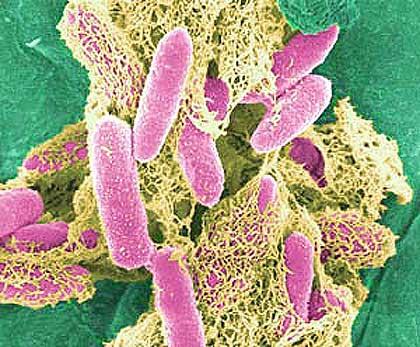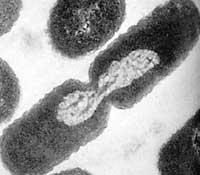Immortality
2005/02/04 Roa Zubia, Guillermo - Elhuyar Zientzia

Man dies, that is, he ends his life through death. And to be descendants it must necessarily reproduce before death. But in the case of bacteria it is different: it is divided into two parts to reproduce and the two that have been formed are the following. The original, the bacterium 'mother', does not die, but disappears through this process. For this reason, biologists have considered that bacteria are immortal or that, at least, their life cycle does not end with death.
This idea has been put into question by a group of French researchers. They have worked with the bacterium Escherichia coli, a well-known rod-shaped bacterium. This bacterium, to divide it, makes a copy of all its components and once formed two copies are separated physically. Somehow, one copy collects old material and the other new copy.
But from there, the two specimens do not grow at the same speed; the one that has received the old material grows more slowly. To some extent, the owner of the new copy has a more effective metabolism. Again and again divided, the oldest material can lose its reproductive capacity and get to die. The supposed bacterial immortality, therefore, is in danger.

Gai honi buruzko eduki gehiago
Elhuyarrek garatutako teknologia






